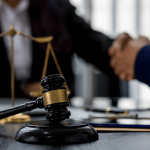How Do Commercial Leasing Lawyers Handle Disputes?
Commercial leasing lawyers play a critical role in resolving disputes that arise between landlords and tenants in commercial real estate transactions. These legal professionals specialize in interpreting lease agreements, negotiating terms, and representing their clients in disputes that may arise during the lease term. Here’s how they typically handle disputes with commercial lease lawyer:
- Reviewing Lease Agreements: The commercial lease lawyers brisbane start by thoroughly reviewing the lease agreements to understand the rights and obligations of both parties. They examine clauses related to rent payments, property maintenance, repairs, insurance requirements, and dispute resolution procedures.
- Negotiation and Mediation: In many cases, disputes can be resolved through negotiation or mediation before escalating to litigation. Lawyers representing landlords and tenants engage in discussions to find mutually acceptable solutions to the issues at hand. This may involve renegotiating lease terms, clarifying misunderstandings, or finding compromises that satisfy both parties.
- Demand Letters: If one party believes the other is in breach of the lease agreement, their lawyer may send a demand letter outlining the alleged violations and requesting compliance within a specified timeframe. These letters often serve as an initial attempt to resolve the dispute without resorting to litigation.
- Litigation: When disputes cannot be resolved through negotiation or mediation, commercial leasing lawyers may initiate litigation on behalf of their clients. This involves filing a lawsuit in court and presenting arguments and evidence to support their client’s position. Common issues that may lead to litigation include non-payment of rent, property damage, lease termination disputes, or disagreements over lease interpretation.
- Court Representation: During court proceedings, leasing lawyers advocate for their clients, presenting legal arguments, questioning witnesses, and presenting evidence to support their case. They may also engage in pre-trial motions, settlement negotiations, and other legal proceedings to pursue the best possible outcome for their client.
- Alternative Dispute Resolution: In some cases, parties may agree to alternative dispute resolution methods such as arbitration or mediation instead of going to court. Commercial leasing lawyers are skilled in representing their clients in these forums, advocating for their interests and working towards a resolution that avoids the time and expense of traditional litigation.
- Enforcement of Judgments: If a court rules in favor of one party, the winning party’s lawyer may assist in enforcing the judgment. This may involve securing court orders for eviction, monetary damages, or other remedies specified in the judgment.
- Appeals: If either party is dissatisfied with the outcome of the initial court proceedings, their lawyer may file an appeal to a higher court. Commercial leasing lawyers handle the appellate process, presenting arguments to the appellate court and advocating for a reversal or modification of the lower court’s decision.






